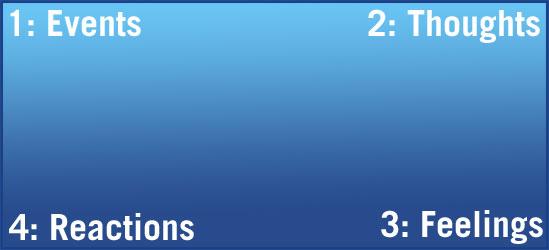Whether you want to electrify your peak performance under pressure at work or in the mud, boost your confidence and mental toughness in your gym, amplify your leadership or ignite team cohesion in your company or on the ball field, it takes motivation, goal setting, relaxation, concentration, imagery, and self-talk. It takes an exceptional mental workout to arouse and insure a picture-perfect physical workout in the fitness center, on the track or on game day, at your favorite boot camp or in your home gym.
Fitness is 100% mental. Your shoulders, arms, legs, back and core won’t do what your mind doesn’t tell them to do.
Let’s break it down. Sport psychologists and behavior science or mental skills coaches for elite amateur and professional athletes, for everyday Janes and Joes interested in promoting their optimal health and peak fitness, for children and active aging adults alike, teach these mental skills. It’s time for you to learn these mental workout skills as well as you face your own goals and hurdles.
Marcus Aurelius, the last of the “Five Good Emperors,” was the Roman Emperor from 161 to 180. He may have been the first sports psychologist, or perhaps should have been. He observed, “You have power over your mind—not outside events. Realize this and you will find strength.” He taught, “When you arise in the morning think of what a privilege it is to be alive, to think, to enjoy, to love…”
What’s this have to do with a mental workout, you ask? Everything. You see, the current model of teaching mental skills to athletes and fitness enthusiasts trains clients on how what and how they think impacts their practice and competition. It’s what I tell the clients I coach, “The link is what you think.”
Cutting-edge mental skills workout training coaches you in how to control your thoughts and images so that you’ll relax, concentrate under pressure, focus on your routine, and not worry about outside things and events—what Aurelius teaches are beyond your control.

To begin your mental workout, understand the mental workout diagram above. Events (1) don’t create your feelings (3). What you think (2) about outside events do create feelings (3). Again, “The link is what your think.”
Your feelings (3) in turn lead to your reactions and performances (4) —whether doing cross-fit, running a half marathon, in a tennis match, or in a strategic planning meeting with your business work team. Stop, or avoid, thinking (2) and you’ll have no feelings (3). Blame everything on events (1) for what you feel (3), and you are simply a victim of the conditions in your life on and off the field. It’s as if you decapitated yourself by not taking responsibility for the way you think (2) about events (1).
Here’s an example. You miss hitting a goal in your weight lifting, either the number of reps or the amount of weight. That’s the event (1). You think at #2, “No problem, I still did better than I did yesterday!” Then at #3, you feel good about yourself and you are able to stay positive in your problem-solving approach to hitting our rep or goal weight tomorrow.
Imagine this scenario. At #1, the event is, let’s say you completely missed your first lap run time. At #2 you think in black and white terms, “Why bother continuing, I’m having a completely bad day so I’m totally giving up.” At #3 you feel down, like a loser, a quitter and anxious about your next time out.
You won’t stay in the flow of your event, play in your winning zone, if you keep telling yourself that you’re going to fail, strikeout, lose, be unable to lift or get to the finish line. “The link is what you think” on and off the field. Always. Always.
See how this mental control workout works? So let’s move on. Here are the key components of a mental workout pre-game, pre-run, pre-event, pre-business meeting.
My M.I.N.D. workout includes Motivational goal setting, Imagery, Natural relaxation, Directed concentration. Of course, this all rests on accurate, positive self-talk, or “The link is what you think.”
Motivational goal setting
Yogi Berra once said, “If you don’t know where you’re going, you might not get there.” So it is with goal setting, the first set in the mental workout. Rule #1 is to be sure you set process, performance, objective, “how you perform along the way” goals, not outcome or “did I win or lose?” goals. Set goals that are SMARTER than the next guy and you’ll likely come with the gold. These goals are specific, measurable, attainable, realistic, time-focused, enthusiastically set and revisable. These are goals you control. You can’t control outcome goals, only the process and your performance along the way.
Imagery
Imagery is more than visualization in the way I coach my athlete clients. It involves all of the senses, not just “seeing” a specific performance. Take a few minutes before going to the gym, hitting the trails, diving into the mud or talking to your boss, and sit quietly with your eyes closed, doing “imbalanced breathing” into a count of, let’s say 5 and out to a count of 10. If you breath in to the count of 4, breath out to the count of 8. That’s imbalanced. Begin imagining your performances very specifically as you’d like to it to be, only see it not as a future event but rather as an event that has already happened. See yourself already in the position you’d like to be in, controlling your emotions, running along a path, lifting a certain amount of weight, slogging through mud with your team—but in the past tense, not in the future. “I’ve already accomplished a 3 second decrease in my freestyle event.” Imagine having been distracted in an event and that you handled it easily by refocusing. When it happens in reality, you’ve already been there and handled it.
Natural relaxation
Anxiety management is the key to performing well under pressure. Self-control of emotion, not labeling (thinking) outside events in a way that adds invented pressures that only exist in the way in which you think (“I MUST win this tournament or it’ll be awful!!!”), are critical to dealing with pressure, successful performance and doing your best. The best way many coaches suggest is to make practices as close to the event as possible. But there’s more. Techniques such as meditation, breathing techniques described above (“imbalanced breathing”), and relaxation training are all excellent additions to the mental workout. The latter involves a simple method of tensing a group of muscles and then relaxing them, breathing in calming thoughts and letting go of worrisome, anxious thoughts, while tensing and relaxing.
Directed concentration
Those of us who do mental performance coaching in the locker room and in the boardroom, teach concentration that is based on width and direction. Both broad and narrow concentration, and external and internal concentration play a role in your performance. Of course, which you use depends on the sport and the event you are preparing for. Football quarterbacks use broad views to focus on the location of opposing team players. Weight-lifters are quite narrow in what they concentrate on in terms of a muscle group. External concentration may help a runner at various times in a marathon race, for example turning away from internal exhaustion or fatigue late in a race. Mapping out which concentration form to use before an event will enable you to draw on it when necessary as planned.
 SIDEBAR: Accurate positive self-talk
SIDEBAR: Accurate positive self-talk
The way an athlete talks to him/herself has a direct impact on performance, both positive and negative. Taking longer than you anticipated in that freestyle event? Do you label yourself an “idiot” and predict, “I’ll never win”? If so, you won’t have to wonder much why you feel angry, hopeless and tense. Or do you tell yourself (“think”) “I’m shooting for a one-second decrease in my time and if do it like I did in practice and how I imagined it, I’ll get there.”
Are you an “all or nothing” thinker? You view a challenge in only two categories, win or lose, instead of on a continuum.
Are you a “fortune teller”? You predict the outcome of a challenging event negatively and don’t consider other outcomes.
Are you an “emotional reasoned”? You think something must be true because you “feel” it so strongly, ignoring or discounting evidence to the contrary. You reason from how you feel: “I feel like I can’t get through this, so I must not be able to.”
Are you a “mental filter” thinker? You pay too much attention to one negative detail of your performance instead of seeing the whole picture of your complete effort.
Are you a “labeler”? You call yourself global names with no real evidence. You aren’t a loser because you made a mistake, unless you call yourself that name.
Michael R. Mantell earned his Ph.D. at the University of Pennsylvania and his M.S. at Hahnemann Medical College, where he wrote his thesis on the psychological aspects of obesity. He served as the Senior Fitness Consultant for Behavioral Sciences for the American Council on Exercise, the Chief Behavior Science consultant to the Premier Fitness Camp at Omni La Costa and is a member of the Scientific Advisory Board of the International Council on Active Aging, a best-selling author, an international behavior science fitness keynote presenter, an Advisor to numerous fitness-health organizations, and is featured in many media broadcasts and fitness publications. Dr. Mantell is a nationally sought-after behavioral science coach for business leaders, elite amateur and professional athletes, individuals and families. He is listed is listed in the 2013 “The 100 Most Influential People in Health and Fitness”

